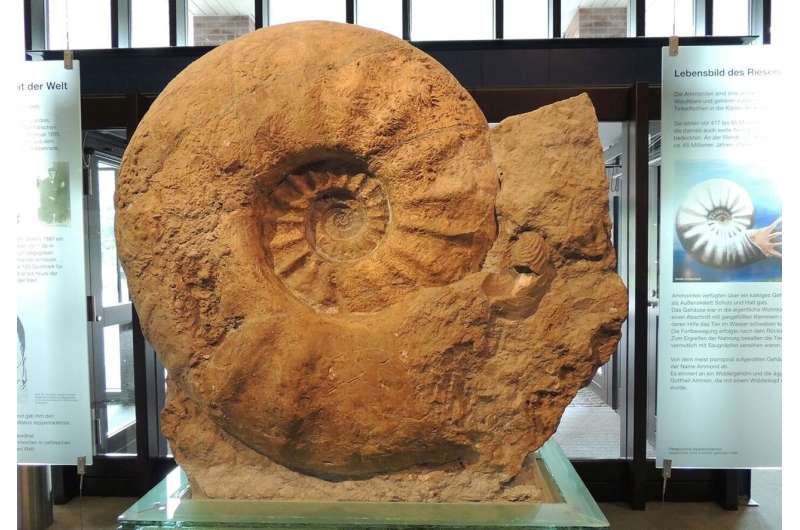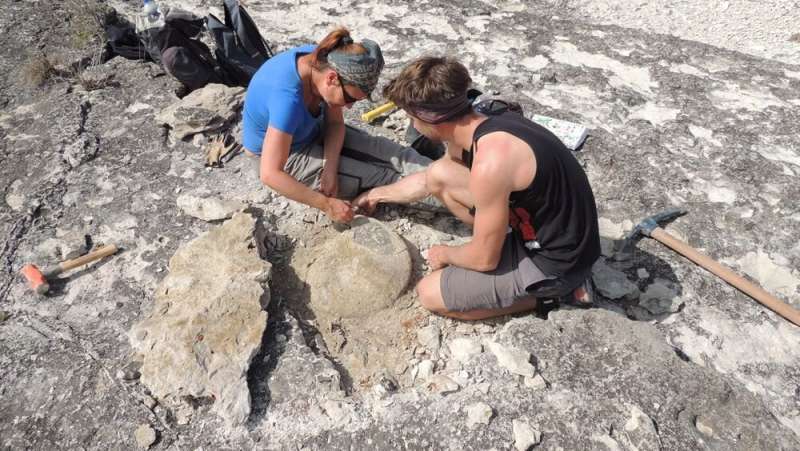Huge ancestors of squid once littered England’s beaches

Vast ammonites, relatives of squid and octopus, up to 1.8 meters across once littered the East Sussex seas, according to new research.
Ammonites fossils more than 80 million years old and which can easily be seen today on the shores of southern England have been described by an international team of scientists.
The creatures once thrived on both sides of the Atlantic, in Sussex and in Mexico, before being wiped out by the same meteorite strike which brought the age of dinosaurs to an end.
One of the team who have described the prolific collection of ammonites in England is Professor Andy Gale at the University of Portsmouth.
He said that “this giant species is commonly found in the chalk on the foreshore at Peacehaven in East Sussex, where erosion by the sea has exposed molds of the shells (image). The largest specimens are females, which probably spawned once and subsequently died. The chambered shells were buoyant, and floated in the Chalk Sea for a long time before finally sinking to the bottom, where they have been preserved for millions of years.”
The team, led by Dr Christina Ifrim, a paleontologist and head of the Jura Museum in Germany, published their research in PLOS One.

They studied 154 giant ammonites from Cretaceous period found in rocks in Germany, Mexico and the UK.
Professor Gale said: “These enormous, long extinct, shelled cephalopods, related to squid and octopus, achieved a maximum shell diameter of 1.8 meters and are best known from a specimen in a German museum. They were wiped out by the same end-Cretaceous meteorite impact 66 million years ago which did for the dinosaurs.
“Fossil finds of the species are extremely rare, so little is know about them. But because we found so many in Sussex, we can start piecing together the sequence of their evolution.”
Of the 154 fossils examined, 110 were found on the beaches in Sussex or in Mexico. From these, the team was able to determine the species thrived 83 million years ago and grew enormous.
Because the fossils were found in clusters, the researchers believe the ammonites died and sank after reproducing, which they did only once in their lifetime.
The first specimen ever found was discovered in 1895 in Germany. It remains the largest ever found.
Evidence of predation by octopuses pushed back by 25 million years
Citation:
Huge ancestors of squid once littered England’s beaches (2021, September 30)
retrieved 30 September 2021
from https://phys.org/news/2021-09-huge-ancestors-squid-littered-england.html
This document is subject to copyright. Apart from any fair dealing for the purpose of private study or research, no
part may be reproduced without the written permission. The content is provided for information purposes only.
For all the latest Science News Click Here
For the latest news and updates, follow us on Google News.

